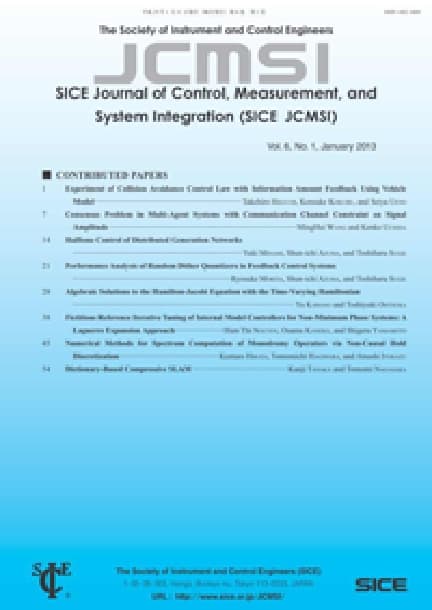Adaptive Weighted Aggregation with Step Size Control Weight Adaptation for Multiobjective Continuous Function Optimization
Tetsuya SHIODA, Isao ONO
pp. 303-311
DOI:
10.9746/jcmsi.8.303Abstract
This paper presents a new relocation method for Adaptive Weighted Aggregation (AWA) that is a powerful multi-start framework of scalarized decent methods for multi-objective continuous function optimization. AWA repeats two procedures; subdivision and relocation. Subdivision decides initial weight vectors and solutions for relocation. Relocation iteratively adapts weight vectors by repeating two procedures of optimization and weight adaptation in order to improve the coverage of an approximate solution set. AWA has been reported to find better approximate solution sets in terms of coverage than conventional multi-start methods. However, relocation has three serious problems when applied to problems with strong non-linearity. First, relocation often does not converge. Secondly, relocation often converges before obtaining the desired weight vector. Thirdly, the convergence speed often becomes very slow. In order to remedy these problems, we propose a new relocation method named the step size control weight adaptation method (SSCWA). In order to investigate the effectiveness of SSCWA, we compared the performance of AWA with SSCWA (AWA-SSCWA) with that of the original AWA on three to five objective benchmark problems with ten variables. As a result, we confirmed that AWA-SSCWA outperformed the original AWA on the benchmark problems.
Readers Who Read This Article Also Read
SICE Journal of Control, Measurement, and System Integration Vol.7(2014), No.4
SICE Journal of Control, Measurement, and System Integration Vol.7(2014), No.4
SICE Journal of Control, Measurement, and System Integration Vol.13(2020), No.4









